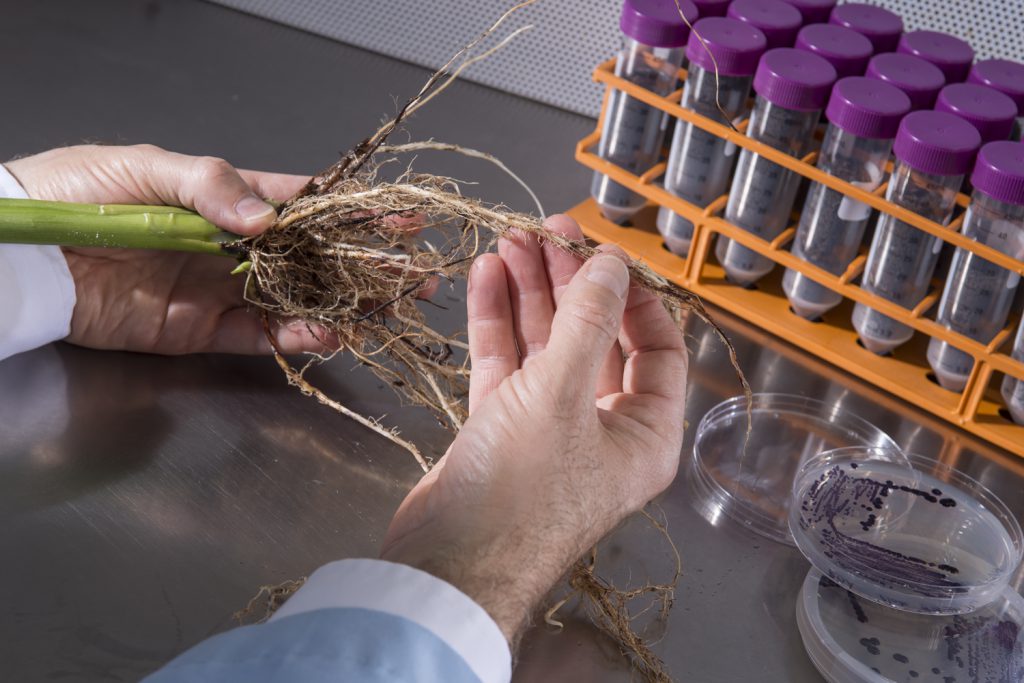- Menu
-
Enhancing Sorghum for Biofuel Production
Food, Energy and Water
-
Getting to the Root of Crop Improvements
Plant Science
-
New Chancellor Envisions Bold Future for Research
Leadership
-
NU FEWS Sparks Innovation in Food, Energy and Water
Food, Energy and Water
-
Closing Achievement Gap for Kids
Early Childhood
-
Enhancing Early Childhood Development
Early Childhood
-
Drones Could Help Fight Fire with Fire
Unmanned Aerial Vehicles
-
Surprising Discovery Contradicts Predictions
X-ray Material
-
Laser Creates Surfaces that Mimic Nature
Laser Research
-
USSTRATCOM Delegation Visits UNL
Defense Research
-
Prospecting with Biosensors at Home or in the Field
Chemistry
-
Gift Creates Johnny Carson Emerging Media Arts Center
Media Arts
-
System Helps Diagnose, Treat Brain Damage
Health
-
UNL Hosts University, Industry Leaders
Industry Relations
-
Momentum Builds on Nebraska Innovation Campus
Economic Development
-
Bioinformatics Focus for NIC’s First Faculty Startup
Bioinformatics
-
Improving Surgery through Robotics
Robotics
-
CD Celebrates Collaboration with Philip Glass
Performing Arts
-
Strengthening Region’s Nanotech Assets
Nanoscience
-
Geospatial Technology Helps Restore Wetlands
Environment
-
Maximizing Innate Talent
Leadership
-
Early Career Awards Boost Promising Research
Honors
-
Research Highlights
-
Accolades
-
Financials
-
Credits
-
On the Cover
- PDF version

Enhancing Sorghum for Biofuel Production
Corn may be king, but sorghum is a top contender to replace it as the nation’s primary biofuel source. UNL leads multi-institutional research to improve sorghum’s productivity and significantly advance sustainable ethanol production.
Optimizing sorghum’s biofuel potential would relieve pressure on an important global food source. Sorghum grows on marginal lands and needs less water and resources than corn.

“It’s becoming increasingly recognized that we need to move biofuel production to more marginal lands so they don’t compete with food crops,” said project leader Daniel Schachtman, an agronomist who also directs UNL’s Center for Biotechnology.
Nearly all U.S. ethanol is made from starch in corn kernels. But technologically advanced ethanol plants now use cellulose, the main component of plant cell walls.
Sorghum bred for energy production creates more biomass for cellulosic ethanol than corn.
With $13.5 million from the U.S. Department of Energy, UNL leads a team of researchers with diverse expertise from nine universities and institutes. UNL’s tremendous field research capacity, extension programs and plant research expertise make it an excellent institution to lead the project, Schachtman said.
“Nebraska will be the focal point for much of the work. The university has developed fantastic field research facilities that really put us ahead,” he said. “Because we’re doing work in the field, it will translate into practical applications much faster.”


To improve sorghum’s productivity under resource-limited conditions, the team takes a systems approach. Researchers are investigating both sorghum genetics and soil microbes that interact with roots.
Outcomes should include strategies to increase plant biomass as well as to make sorghum production systems more water- and nutrient-efficient.
The work taps advances in marker-assisted breeding, metagenomics and computational genomic analysis. Scientists will identify sorghum varieties and the genes that enhance water and nitrogen use efficiency under limited conditions. Microbiologists will identify and study soil microbes that enhance nutrient uptake, water use efficiency and disease resistance.
Bringing both approaches together, the team will experiment to find the genetic and microbial combinations that deliver the greatest productivity benefits. Initial research has demonstrated promising results, Schachtman said.
UNL is teaming with scientists at Danforth Plant Science Center, Washington State University, University of North Carolina at Chapel Hill, Boyce Thompson Institute, Clemson University, Iowa State University, Colorado State University and the DOE Joint Genome Institute.
Additional content
UNL leads $13.5 million research to enhance sorghum for biofuel
